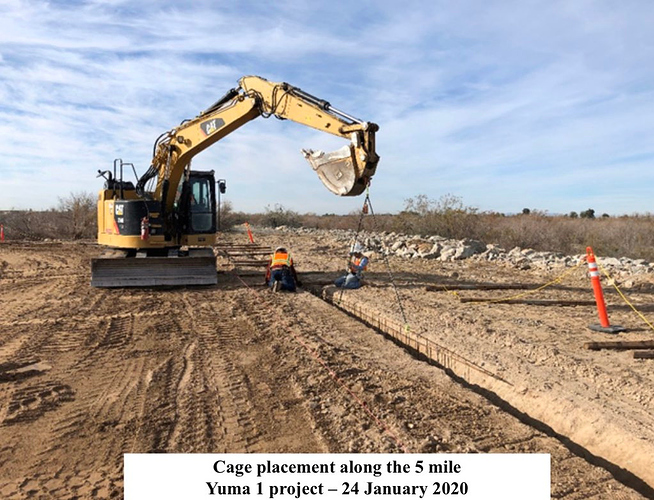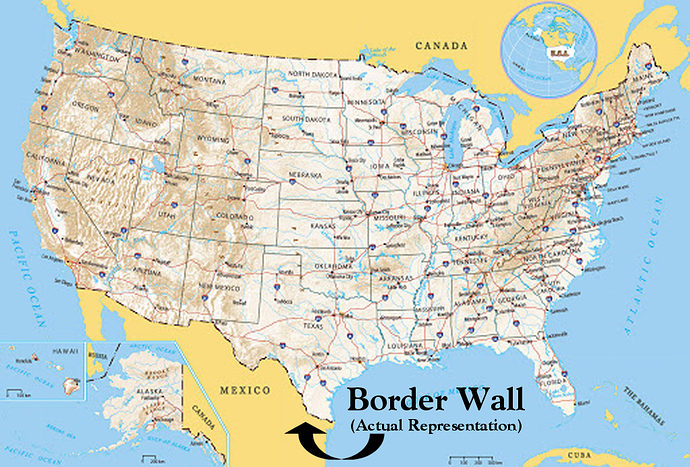For a moment, Jesus thought his ordeal was coming to an end. Three months after fleeing Venezuela, he got his chance to tell a judge how he and his mother escaped political persecution.
“The judge asked me three questions,” Jesus said in Spanish through an interpreter. “What’s your nationality? Why did you leave your country? Why can’t you go back?”
Jesus asked NPR not to use his last name because he wants to protect relatives who are still in Venezuela. He doesn’t speak English, and he didn’t have a lawyer at the time of his immigration court hearing. Still, he felt the judge really understood his story.
“I explained my case to him. And he accepted my experience,” Jesus said.
The judge granted Jesus withholding of removal, a form of protection from deportation. In other words, he won — something that very few migrants at the border can say these days. Jesus thought he might finally be allowed into the U.S., where he could reunite with his family.
Instead, immigration officers told him he was going back to Mexico, where he’d already spent nearly three months waiting to see a judge.
“I had no idea what was happening,” he said. “No one explained it to me.”
More than 55,000 migrants have been forced to wait in Mexico for their day in U.S. immigration court under the Trump administration program known as Remain in Mexico. It’s one of several key changes that have made it extremely difficult to win asylum in the United States. Just a tiny fraction of migrants in the program — less than 1% — have gotten protection.
Even when migrants win in immigration court, in some cases they’re still not allowed to stay here. Immigrant advocates have identified at least 17 cases of migrants who have been returned to Mexico after being granted protection by an immigration judge.
When Mark Morgan, the acting commissioner of U.S. Customs and Border Protection, was asked about this case at a news conference in December, he said that any migrants who have won their case should be allowed into the United States.
“I don’t think that should be happening,” Morgan said in response to questions about Jesus’ case. “If that’s happened the way you described that, then that’s an anomaly. It’s a mistake. But we’ll take a look at that.”
Last week, however, Customs and Border Protection offered a different explanation. In a statement, the agency says it can return migrants to Mexico while authorities consider whether to appeal an immigration judge’s ruling.
“When an immigration judge’s decision is appealed or under consideration for appeal, immigration proceedings remain underway,” a CBP spokesman said.
Immigration lawyers disagree with that interpretation.
“The proceedings in immigration court were finished. There were no more hearings to be held,” said Kennji Kizuka, a lawyer with Human Rights First. He took on Jesus’ case after he’d already won in immigration court.
When immigration authorities returned Jesus to Mexico, the paperwork they gave him listed a court date in November. But that date didn’t appear on any court docket.
“They put a fake date on a piece of paper that says you have an upcoming hearing. And there was no hearing,” Kizuka said.
The date is important, Kizuka says, because under the rules of Remain in Mexico, migrants can be returned only if their court case is still pending. “They wanted to return him to Mexico again, and they needed to convince the Mexican officials to take him back,” Kizuka said.
CBP denies using fake court dates. The agency provides migrants “with a date that the individual can check in with U.S. officials about the status of the appeal,” according to a spokesperson.
But Kizuka says the paperwork CBP provided to Jesus after his final court hearing contains a number of false statements. It says that Jesus was “currently in proceedings before an immigration judge” and that “an immigration judge ordered you to return to court for another hearing.”
The document does not mention a possible appeal. In fact, the government did not appeal Jesus’ case.
The Trump administration has been trying to limit asylum at the southern border by discouraging what it considers frivolous claims. But Kizuka says the administration is turning away legitimate cases too.
“The Trump administration is trying to basically frighten refugees away from the United States,” he said. “To make it so scary and dangerous for them to come to the border and ask for help that they just give up and go away or never come to begin with.”
Jesus says it was too dangerous to stay in Venezuela, a country that has been rocked by political upheaval. He was a police officer there, and he says his superiors ordered him to arrest members of a political opposition party on bogus charges. He refused.
“They started to persecute me and my family,” he said. “They killed my father. My mother was followed. She was threatened with a pistol and beatings.”
Jesus says that he was jailed and beaten and that his father died after being refused treatment for a heart condition at a local government hospital. That is when he and his mother decided to leave.
“I had already lost my father, and I didn’t want to lose my mother,” he said. “So I sold all my belongings in Venezuela.”
That was the beginning of a five-month saga for Jesus and his mother. They tried to put their names on a waiting list to request asylum at a port of entry in Texas, but they say they were told repeatedly by the keepers of that list in Mexico that it was full.
So they crossed illegally and turned themselves over to the Border Patrol. Jesus’ mother was detained in Louisiana. But Jesus was sent back to Mexico until his court date.
“As I was about to leave the Mexican immigration office, one of the officials told me that with the way you look, you won’t go 50 steps without being kidnapped,” he said.
Jesus was dropped off in Nuevo Laredo, Mexico, where migrants are frequently targeted by cartels. He says he did witness kidnapping and violence and narrowly avoided being kidnapped himself, when he managed to escape from a group of thugs at the bus station. He was on his way to meet his lawyer, Kizuka, in person for the first time.
Together, they tried once again to get Jesus into the United States. Kizuka showed immigration authorities the judge’s order granting Jesus protection in the United States.
“They told us that Jesus was not going to be allowed into the United States,” Kizuka said. “One officer told me that by going back to Mexico, his deportation had already been carried out.”
Kizuka says he spent more than four hours arguing with officers at the border, while the staff at Human Rights First called the Department of Homeland Security in Washington, members of Congress — anyone they could think of for help.
Finally, without explanation, Kizuka says immigration officials relented and let Jesus in. He’s now in Florida, reunited with his sister and mother. They’re all fighting for full asylum protections, which would give them a path to citizenship in the United States.
“I hoped the treatment would be warmer, more humane,” Jesus said. “But the officials are really harsh and insulting to migrants. And the system is really complicated.”
Still, Jesus is grateful to be here. He knows a lot of people from Venezuela who are still in Mexico, waiting for their day in U.S. immigration court.
 yes please do, this group would love to read more.
yes please do, this group would love to read more.

